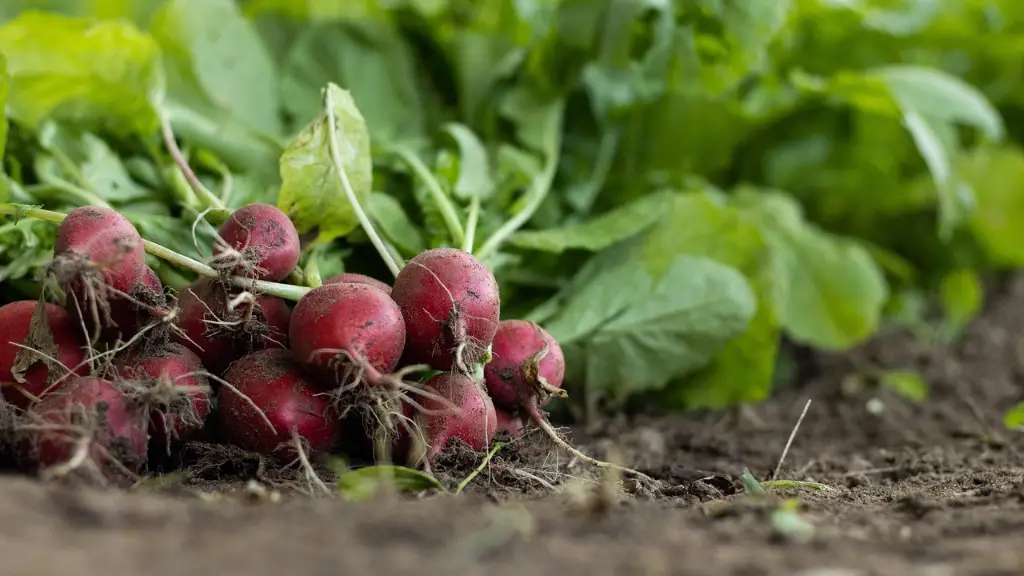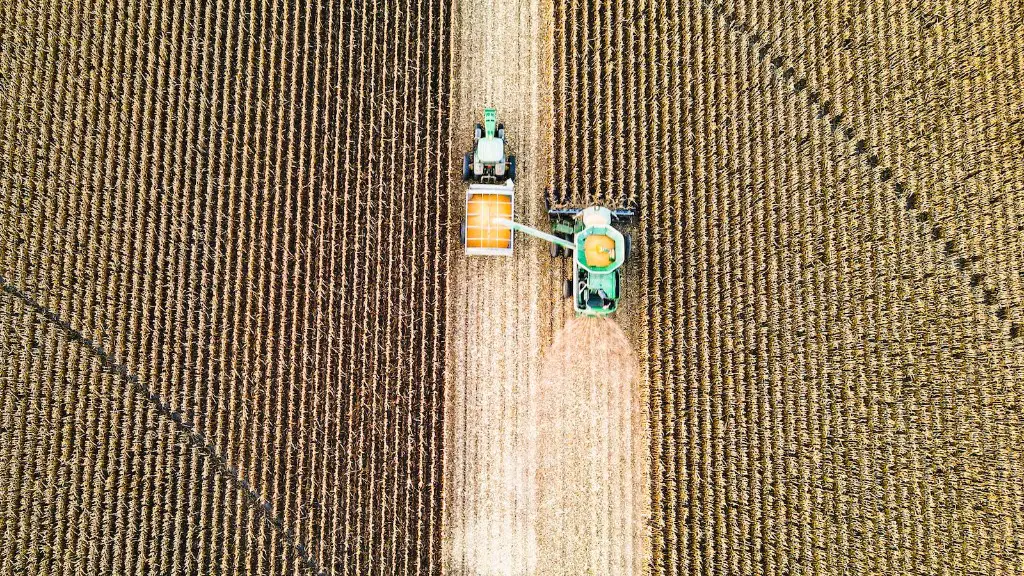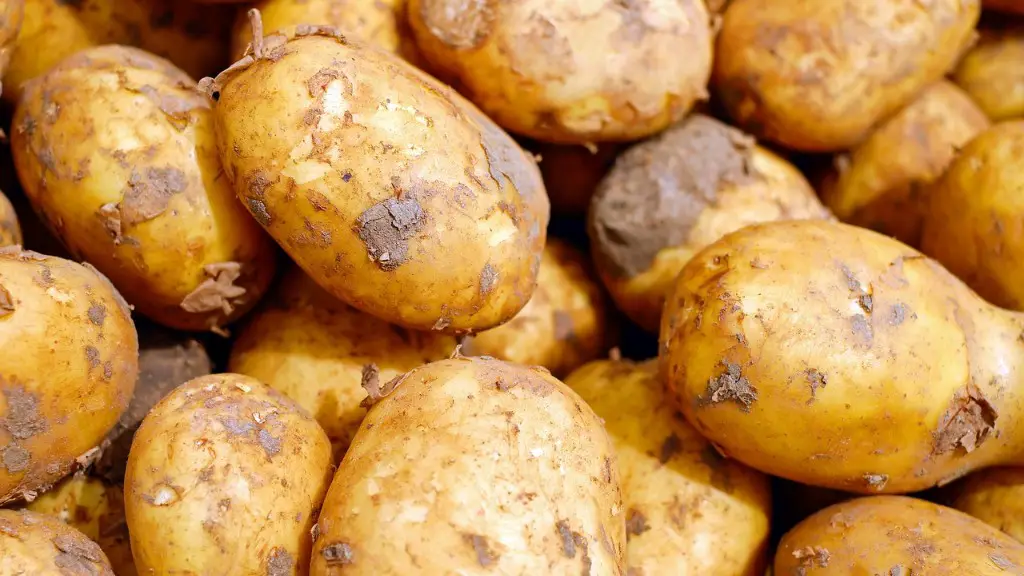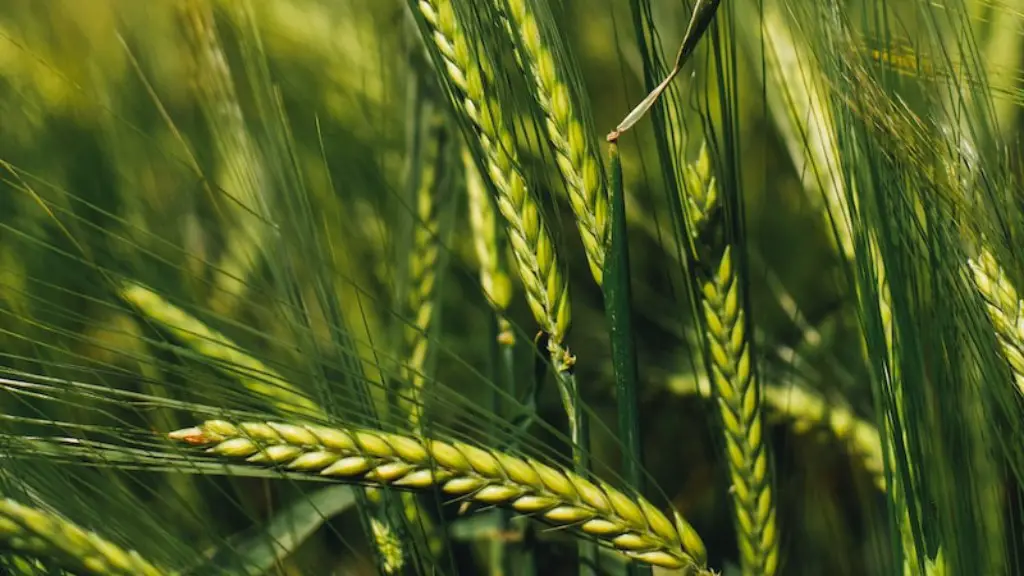The domestication of plants and animals led to fundamental changes in the way that humans lived. Agriculture allowed for the growth of civilizations and the rise of cities. It also led to new technologies and ways of life. Agriculture changed the way Africans lived by providing new food sources, new ways of making a living, and new ways of interacting with the natural world.
The advent of agriculture changed the way Africans lived in a number of ways. First, it allowed for the domestication of plants and animals, which led to a more sedentary lifestyle. Second, it resulted in the development of food surpluses, which allowed for the growth of cities and the rise of civilizations. Third, it resulted in the spread of disease, as crops and livestock provided new opportunities for pathogens to spread. Finally, it led to the enslavement of millions of Africans, as they were forced to work on plantations and in mines to produce goods for the booming global market.
How does agriculture affect Africa?
The African continent is home to a vast array of different cultures, languages, and religions. Despite this diversity, the continent is united by its dependence on agriculture. Agriculture provides employment for about two-thirds of the continent’s working population and for each country contributes an average of 30 to 60 percent of gross domestic product and about 30 percent of the value of exports.
It is interesting to think about how different the world would be if the agricultural revolution had started in Africa instead of the Fertile Crescent. It is possible that the world would be a more equal place, with less of a divide between the haves and the have-nots. However, it is also possible that the world would be a more dangerous place, as the weapons and technology of the agricultural revolution would be in the hands of those who are less peaceful.
How did farming change the way people lived
Farming has played a significant role in human history and the development of civilizations. It allowed for the domestication of plants and animals, which led to the establishment of settled communities and the growth of cities. Farming also allowed people to protect themselves from the elements and from predators.
There are major obstacles that limit the success of small-scale farming in Africa. These obstacles can be categorized in four sections, namely: 1) climate, 2) technology and education, 3) financing and 4) policy and infrastructure. Smallholder farmers in Africa are still among the poorest in the world.
Climate change is a major challenge for small-scale farmers in Africa. Droughts and floods are becoming more frequent and more intense, and soils are being degraded by deforestation and overgrazing. All of these factors make it more difficult for small farmers to produce enough food to feed their families and earn a livelihood.
Technology and education are also major obstacles. Most small-scale farmers in Africa lack access to modern farming techniques and knowledge about how to use them. This makes it difficult for them to improve their yields and incomes.
Financing is another obstacle. Small-scale farmers often lack the capital they need to invest in improved seeds, fertilizer, and irrigation. They also often struggle to get credit from banks.
Policy and infrastructure are also major obstacles. Many African countries do not have policies that support small-scale farmers. And infrastructure, such as roads, storage facilities, and markets, is often lacking in rural areas,
What are 3 effects of agriculture?
While the development of agriculture can have positive effects on the natural life, oxygen production and climate in a region, it can also cause negative effects such as inorganic nitrate pollution, pesticide pollution and salinity problems. These problems are especially prevalent in regions where agriculture is conducted intensively.
Agriculture is the leading source of pollution in many countries. Pesticides, fertilizers, and other toxic farm chemicals can poison fresh water, marine ecosystems, air, and soil. They also can remain in the environment for generations.
What changes did agriculture bring?
When early humans began farming, they were able to produce enough food that they no longer had to migrate to their food source. This meant they could build permanent structures, and develop villages, towns, and eventually even cities. Closely connected to the rise of settled societies was an increase in population.
Agriculture is the backbone of most societies. It provides food for people to eat, raw materials for products, and jobs for people to do. It also strengthens economies through trade.
What early African civilizations did agriculture give rise to
Farming has played a pivotal role in the development of African civilizations for millennia. One of the earliest examples is the rise of Ancient Egypt, which was able to establish itself as a regional power due to its mastery of agriculture. Later on, other African empires such as Kush and Axum would also develop due to their agricultural prowess. In more recent times, the spread of Islam has also played a role in the development of African empires, with countries like Egypt benefiting from the religion’s arrival.
The African farmers lived in larger communities than the San or Khoikhoi for a few reasons. First, more people were needed to care for the herds of animals. Second, larger groups could be supported because the area wasn’t as dry or hot.
Why was life better after the agricultural revolution?
The Agricultural Revolution is one of the most important events in human history. It allowed us to stay in one place and cultivate our own food, which made life much more manageable. This also led to the growth of human society in terms of culture, technology, and more.
Most slave owners favoured commercial crops that required intense labour to plant, harvest, and tend to throughout the growing season. These crops included olives, grapes, sugar, cotton, tobacco, coffee, and certain forms of rice.
Why does Africa have poor agriculture
TheAfrican Union has set a goal for its member states to spend at least 10% of the government’s budget on agriculture, but many countries are not meeting this commitment. In 2021, the average spending on agriculture in Africa was just 41%. This is a big problem because African governments are massively underinvesting in agriculture. This results in poor crop yields, low incomes for farmers, and high food prices for consumers. African countries need to do more to invest in agriculture if they want to improve food security and poverty levels on the continent.
The plague had a significant effect on the relationship between the lords and the peasants. As people died, it became harder to find people to work the fields and harvest crops. This resulted in peasants demanding higher wages. The increased cost of labor led to decreased revenue for the lords and increased tensions between the two groups.
What were the 3 major results of the agricultural revolution?
The Agricultural Revolution was a period of unprecedented increase in agricultural production in Britain, which was linked to new agricultural practices such as crop rotation, selective breeding, and a more productive use of arable land. This increase in agricultural production led to a series of important social, economic, and political changes in Britain, including the rise of the British Empire.
The Agricultural Revolution was a period of great innovation and transformation in agriculture. It saw the development of new crops and new methods of farming, as well as the introduction of new technologies such as the plough and the seed drill. These innovations led to a dramatic increase in agricultural production, which in turn allowed for unprecedented population growth. The Agricultural Revolution also saw the rise of a coherent and loosely regulated agricultural market, as well as the development of new forms of rural-to-urban migration.
Conclusion
Agriculture changed the way Africans lived by providing them with a stable source of food. Farming also allowed for the development of civilizations and the growth of cities. Agriculture allowed for the domestication of plants and animals, which led to a more settled way of life.
The way Africans lived changed dramatically with the introduction of agriculture. Gone were the days of wandering around looking for food. Now, with the knowledge of how to cultivate crops andraise animals, Africans could settle down in one place and build communities. This led to the development of civilizations with complex social structures, religions, and governments. Agriculture allowed the African people to thrive and flourish, and it continues to be an important part of their culture today.





